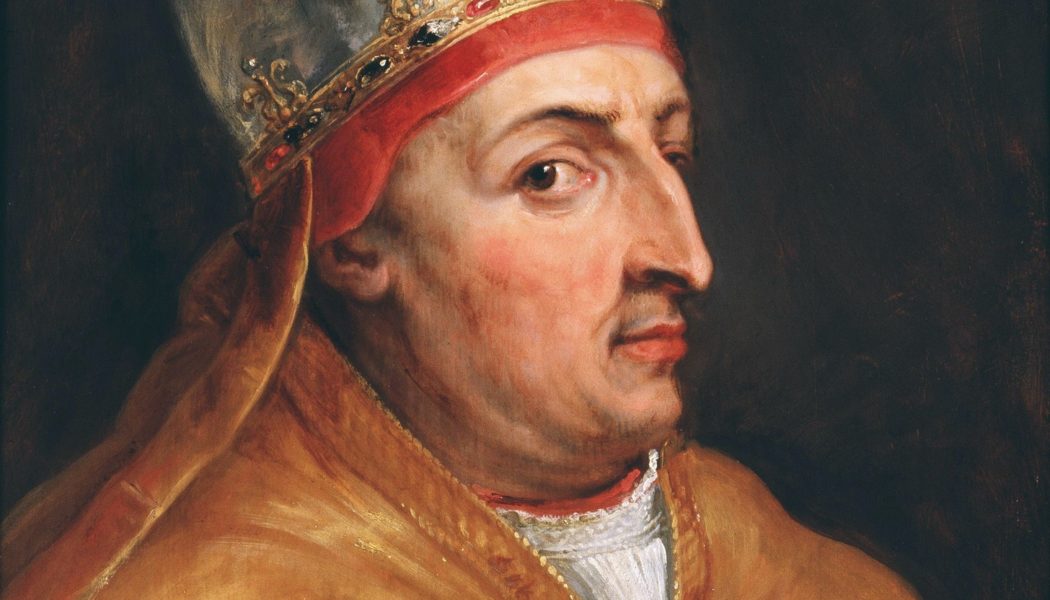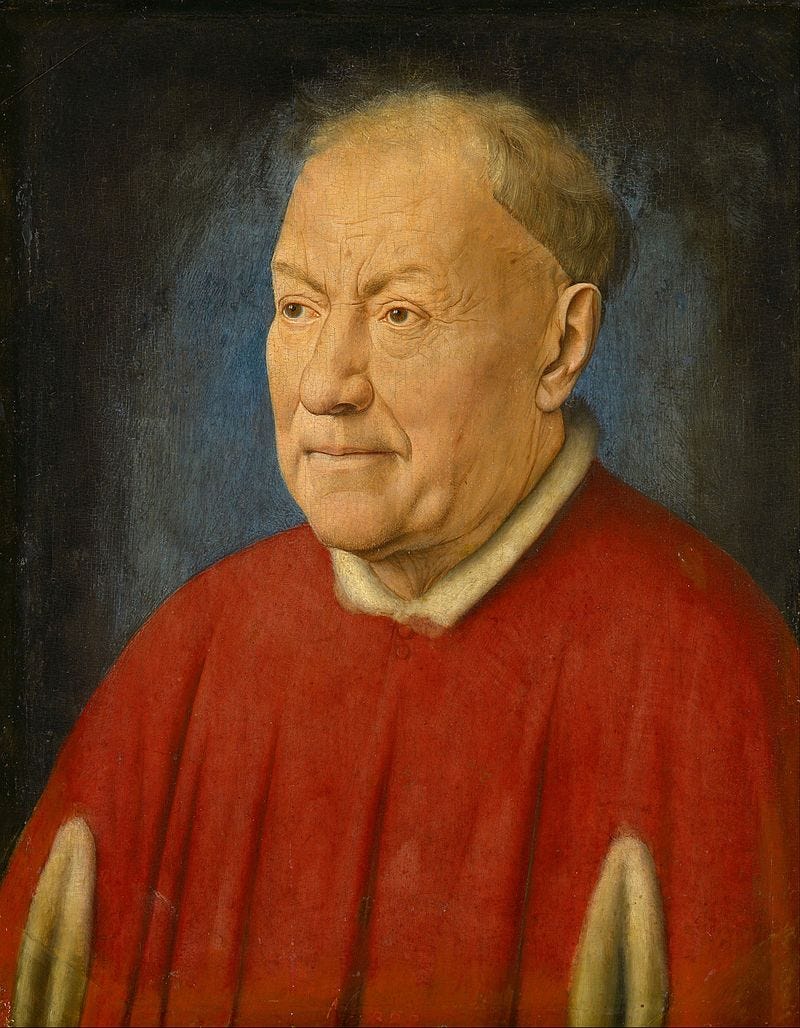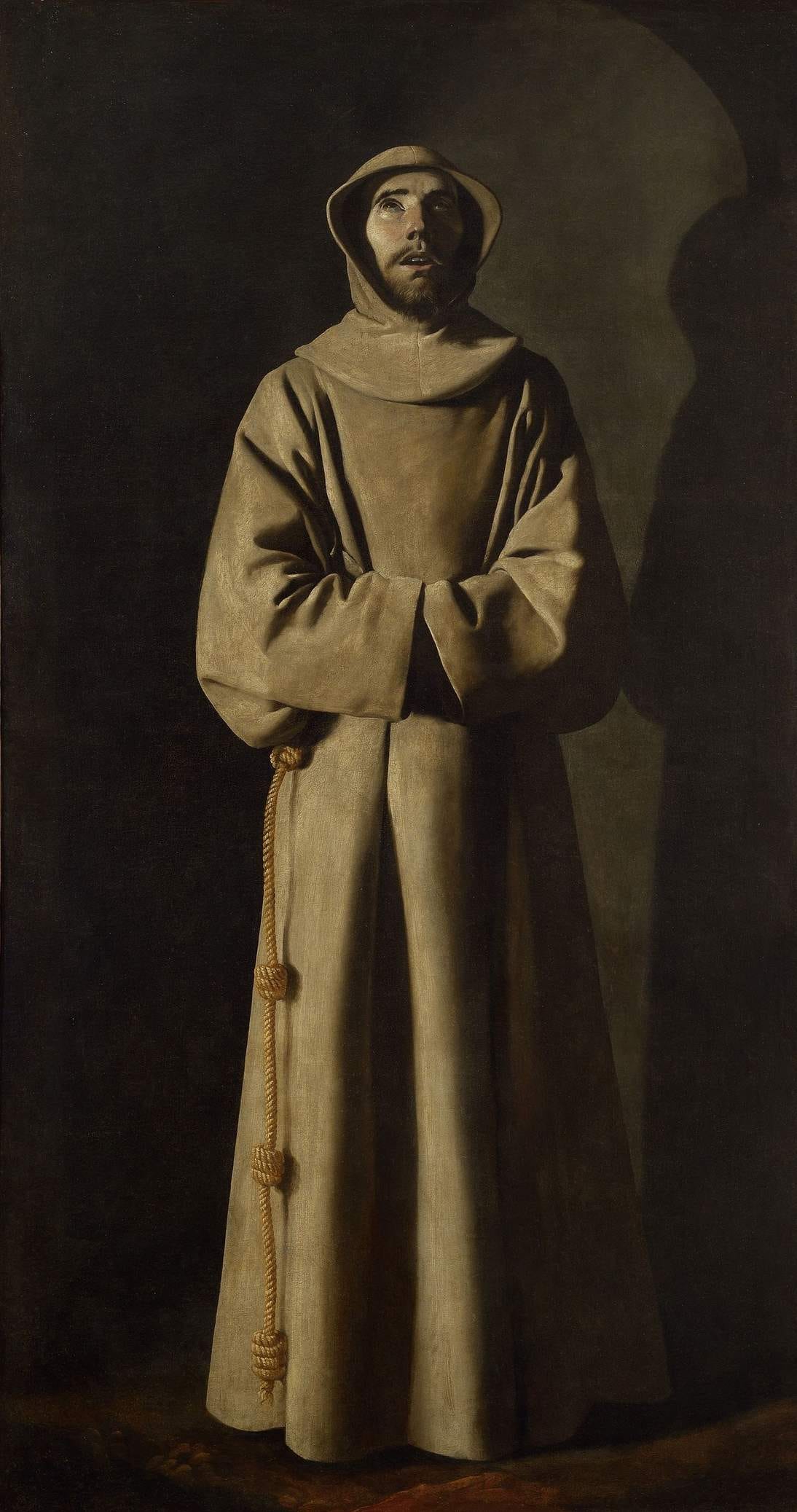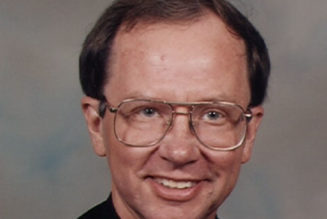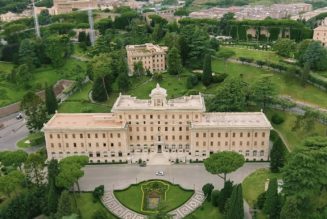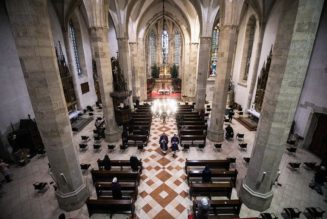Today in Papal History marks the 624th anniversary of the birth of Pope Nicholas V, the man considered to be the first of the “Renaissance popes”.
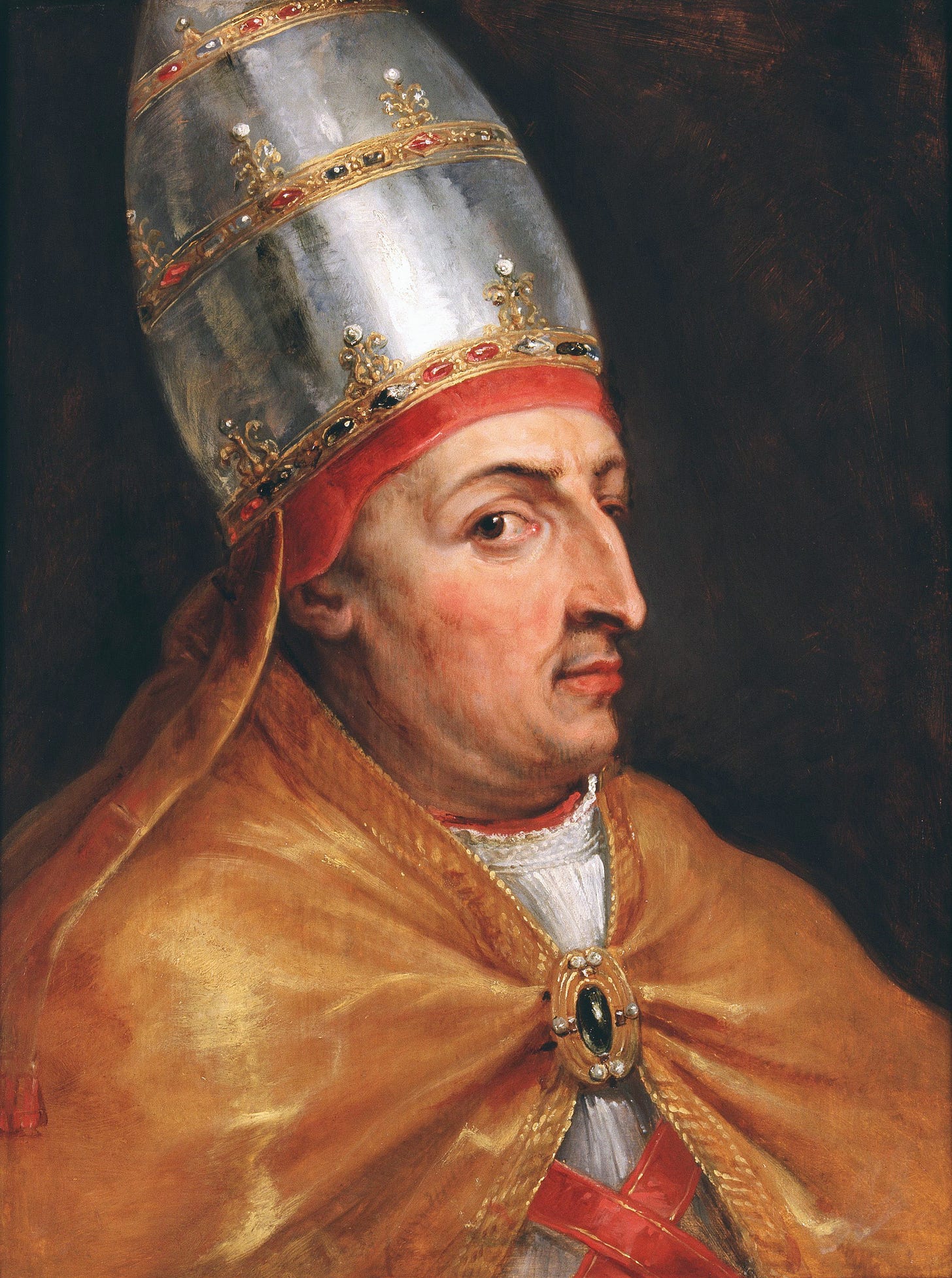
Born as Tommaso Parentucelli, his path to the papacy was a bit unusual, especially for that time. He wasn’t born to one of Rome’s rich or powerful families, but was rather the son of a country doctor who found himself tutoring their children – specifically the wealthy families in Florence.
The future Pope Nick’s path to the top began in his 20s, when he caught the eye of Bologna’s bishop – Cardinal Niccolò Albergati (relevant for later) – and served under him for 20 years as his personal secretary.
Albergati arranged for Tommaso to level up and serve in the court of Pope Eugene IV, but only after the former’s death, which came in 1443. Immediately thereafter, Tommaso was assigned as a papal diplomat to Italy and Germany, and became Cardinal Parentucelli in 1446.
Eugene IV died the following year, and it’s thought that his new(ish) righthand man was a shoo-in at the conclave. Parentucelli picked “Nicholas” as his regnal name in an obvious nod to his old mentor, Cardinal Albergati.
Pope Nicholas V, in addition to being the first Renaissance pope, is also thought of as one of the best Renaissance popes – although, admittedly, that’s wasn’t exactly hard to do.
Although he did have a couple of dark spots on his record, he’s better known for:
-
Being generally humble and morally upright – no mean feat in those days. He frequently referred to himself as “a mere bell-ringing priest” and poked fun at his own short stature and less-than-attractive countenance
-
Convincing Catholicism’s last antipope – Felix V – to resign his objections and reconcile with the Church
-
Effectively founding the Vatican Library, taking great lengths to create an immense collection of both modern and historical texts, which had grown to 5,000 volumes by the time of his death
-
Being a great patron of the arts, especially that of Blessed Fra Angelico
-
Commissioning the plans for the current St. Peter’s Basilica, the construction of which wouldn’t be formally begun for 60 more years (1506, under Julius II) or completed for almost two centuries.
And if that’s not enough, a contemporary account says that Pope Nicholas V at one point made a pilgrimage to visit the tomb of the great St. Francis of Assisi, but didn’t find just the coffin…
According to the account, Francis’s body was discovered intact, standing and hooded, its eyes turned heavenward, hands concealed, and stigmata bleeding as though freshly inflicted. (source)
This painting – a rather notable one of St. Francis – is based on that very story:
So there you go.
Happy 624th birthday, Pope Nicholas V!
Just as an added bonus.
Two years ago, Pope Francis sent a video message to pilgrims gathered in Lourdes, France for the World Day of the Poor, saying:
You, who are at the foot of the cross, perhaps alone, isolated, abandoned, homeless, expelled from your family or from your country, victims of alcohol, prostitution, disease. Be aware that God loves you. God especially listens to your prayer…
…You who are small, you who are poor, fragile, you are the treasure of the Church. You are in the heart of the pope, in the heart of Mary, in the heart of God
Join Our Telegram Group : Salvation & Prosperity
